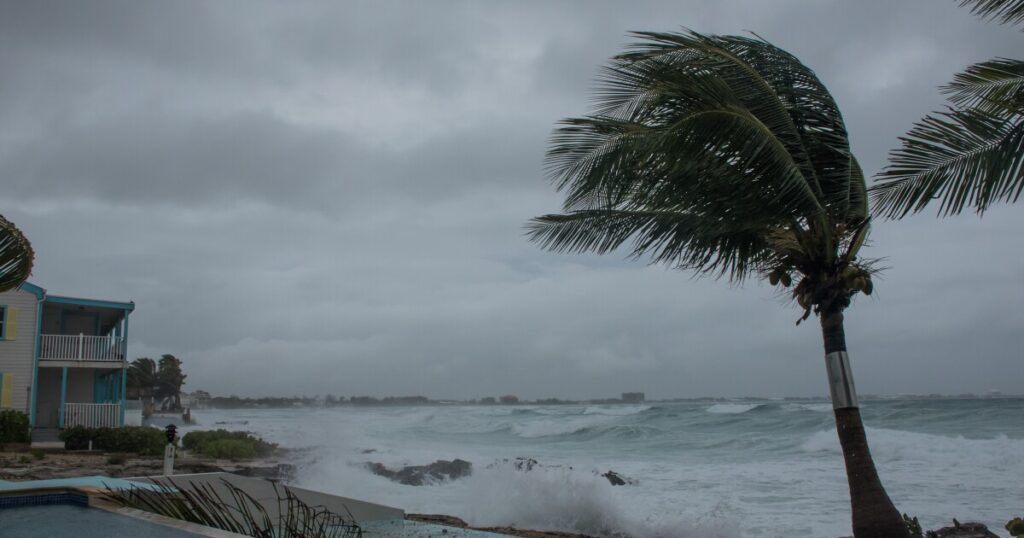After a devastating hurricane, I learned to navigate crisis in the benefits business

In August of 2023, Hurricane Idalia’s storm surge proved to be among the highest levels recorded in my home state of Florida since 1993, triggering crippling stress for Gulf Coast residents like myself. I have dodged hurricanes for more than 20 years in the Sunshine State, but not this time — it will be more than a year before we can return and rebuild our lives and businesses. With a new year upon us and fresh outlook now exuding from tired eyes, it got me thinking about the importance of disaster planning.
Disasters come in all shapes and sizes for benefit agencies and advisers. Ever lose your biggest client to M&A activity or have a key employee pass away unexpectedly? You need a plan to keep your business going under the weight of many challenges. Your service level can’t miss a beat, competition is fierce, and your clients count on you to be there when they need you. It doesn’t matter what just hit your business.
The most important protections for your business during a natural disaster aren’t FEMA, the American Red Cross or insurance. The most important protection for your business is your ability to be resourceful.
Read more: A medical procedure should have cost $100 — it was billed for $8K. Why this is a call to action for advisers
After the hurricane, I initially thought, “I can fix this.” I went to Home Depot, got pressure washers, bleach and cleaning vinegar. This just-wing-it plan didn’t work. Within 48 to 72 hours, our office smelled like a bait shop from flooding and trapped humidity. It was apparent that I needed expertise that I didn’t have to get climate control back in place. That’s when I decided to solve the situation just like I would solve any other business challenge.
I got resourceful and leveraged my network of friends, clients and peers by asking a series of questions: Who do you know that went through a similar challenge? What steps did they take? What lessons did they learn? What decisions need to be addressed and in what order?
The core skills of building a benefits agency are the same ones needed to navigate the impact of a hurricane. You build and stand on the strong shoulders of others, those who have gone before you and are willing to share their wisdom. In return, you share your lessons with others so they can continue to protect and move our industry forward.
Read more: Hurricane season is upon us: Here’s your disaster-ready employee benefits checklist
A disaster-recovery plan should map out the process of resuming normal business operations, salvage vital records and equipment, and serve as a guide for employees during and after a disaster. Here are a few suggestions from my recent experience:
Your team needs to know who to contact after a hurricane or other crisis. Your employee assistance program and direct deposit for payroll help keep everyone feeling secure.With water damage, almost all materials (paper, wood, furniture, metal) will begin to mold or rust within 48 hours in a humid environment. You must assess the damage quickly and decide how you will rebuild.Repairs will take many months to complete, so set up a new base camp right away. The sooner you accept this, the sooner your business will be operating at its new normal. Have lists of all equipment, where it goes to be sanitized, take pictures of damages and determine how you will get items returned. Being highly organized with client contact information across multiple digital storage methods is vital. The cloud and laptops have made paper-based data obsolete. Have IT support located in various areas across the country to protect against a natural disaster in one isolated area. You will need to work with your county for proper debris removal.
Learning how many people in my network had gone through similar disasters and how they navigated through them was fascinating. It reminds me that everyone has struggles and stories. My network advised me that I would need to appeal the initial insurance settlements and that financial assistance would be just that — assistance, not a solution.
Read more: Remote work makes workplace disaster plans essential
My peers made sure I worked with contractors who are licensed and bonded, avoiding scam artists who swoop into an area after devastation, take your money and never return. The most important thing I have learned is that patience isn’t waiting for someone or something to come save you; it is steadfast determination to keep moving your business forward each day.
Picking the right partners to rebuild is a lot like employers picking a benefits adviser. Are they licensed? Any testimonials available? Have they built quality health plans for others? Do they listen to my pain points, and can they demonstrate that they can fix them? If they can’t fix all my challenges, do they have resources they can guide me toward?
When riding out a natural disaster, your clients and employees will be grateful that you are resourceful and you have a disaster recovery system in place to navigate the moving waterlines of business continuation.



